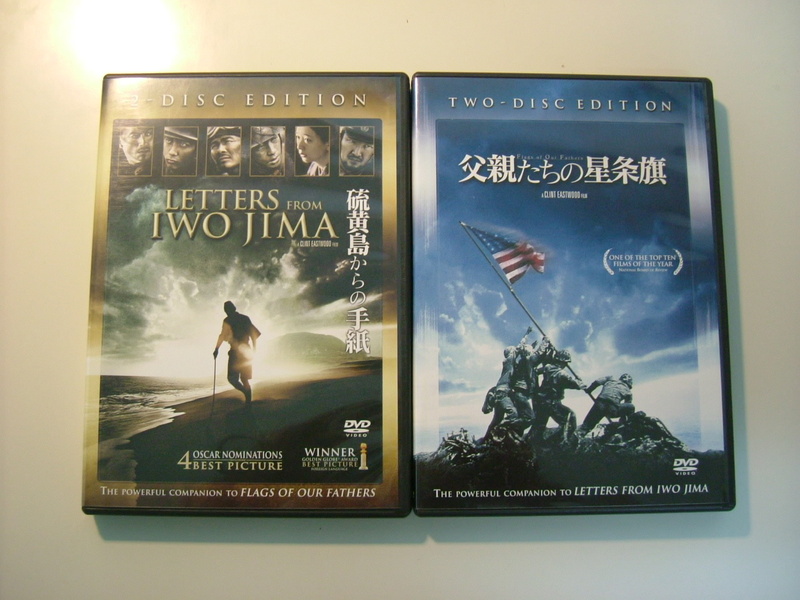I watched the DVD movie "Letters from Iwo Jima" directed by Clint Eastwood. Lots of Japanese people appreciated the movie two years ago, but I felt something different from them.
A soldier, a former baker, relates his reminiscences that some policemen often stole his bread from his bakery shop. Was it actually true? Japanese people at that time were famed for their high moral fiber, and moreover the policemen were paid enough to survive wartime.
Another soldier, a former policeman, spoke reflectively. His boss shot a dog dead with his pistol. Was it really true again? They had the thought that only a bullet was given by the Ten-noh and was very valuable.
Iwo Jima is a small island near the equator. The climate is as you would think. The Japanese army was staying in a cave on that island. Food, water and medication were short and the system of ventilation was poor. It must have been hot in the cave. All the wounds and injuries would have got infected and given off terrible smells in the cave. Many soldiers were dehydrated from dysentery. However, the soldiers in the movie were lively and spoke loudly. I thought it would have been impossible while watching the movie.
I like Clint Eastwood as an actor but I'm kind of dubious about him as a director. I'm very sorry that figments of a writer's imagination turn into facts in his movie because he says that this movie is a real story.
(Vocabulary)
relate one's reminiscences 述懐する
moralistic 道徳心の高い
moral fiber 道徳心
give off sth <におい・気体・熱など>を発する
The paint gives off fumes. ペンキは有毒なガスを発する.
dubious 疑わしい, 不審な, うさんくさい
a figment of somebody's imagination <人>の空想の産物


Thank you for an interesting viewpoint that did not occur to me as I watched the movie, but upon reflection is it important whether or not Saigo or Shimizu's version of events was accurate? People tend to color their memories in a light that makes them appear blameless. This was more about their perception of events than the actual histories
involved.
Having said that I commend you for standing up for the integrity of those that cannot defend it themselves.
I would expect you are quite correct in your assessment of the living conditions in the caves and the troops health, but it seems to me necessary that the actors were able to convey their thoughts and feelings rather than sacrificing that for reasons of exact representations of their daily lives.
May none of these echoes from days past ever be forgotten. As an American I can say it was quite different to see the dignity and courage of the Japanese troops portrayed this starkly. There are few other examples of this in American cinema which historically has often unfortunately resorted to base stereotypes.
Posted by: Dave K | Feb 18, 2008 at 08:13 AM